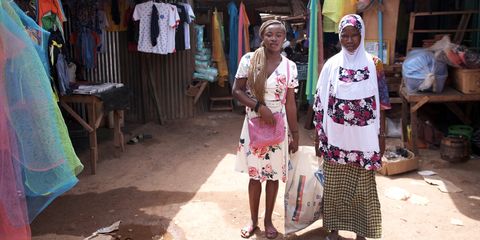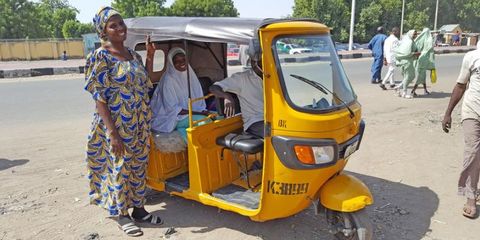The hopes and dreams of Tigray’s displaced children
Displaced children and adolescents in Ethiopia describe their favourite things to do at their local child-friendly space and share their aspirations for the future.
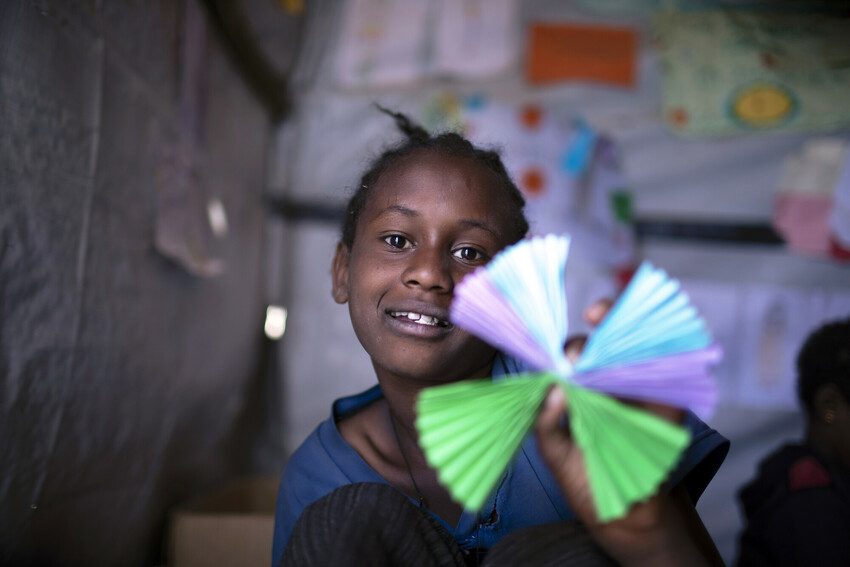
Eyerus, Kisanet, Haftom and Yordanos are children and adolescents from Ethiopia’s Tigray region. Due to conflict they are currently living in internally displaced person (IDP) camps.
They share their favourite things about the child-friendly spaces at the camps and tell us about their aspirations for the future.
Eyerus, 12-years-old
“I live with my grandmother and uncle. My father died when I was 2 years old. I was in grade 6 but had to quit school when the conflict started. We moved to Shire more than a year ago, after fleeing our house. Our journey was difficult and took us days to get here.
“My life is more joyful and hopeful.”
Eyerus
I spend my time at the child friendly space in the IDP camp. I always go to the centre after finishing my breakfast and doing my chores. The activities there help me deal with the stress of my terrible experience.
The staff at the centre taught me how to do paper crafts. I can now make different things with paper. My life skills are also much improved. I can communicate better and use my imagination. I can sing, dance, and create many lovely crafts. My life is more joyful and hopeful.
In the future I want complete my studies and become a teacher.”
Kisanet, 14-years-old
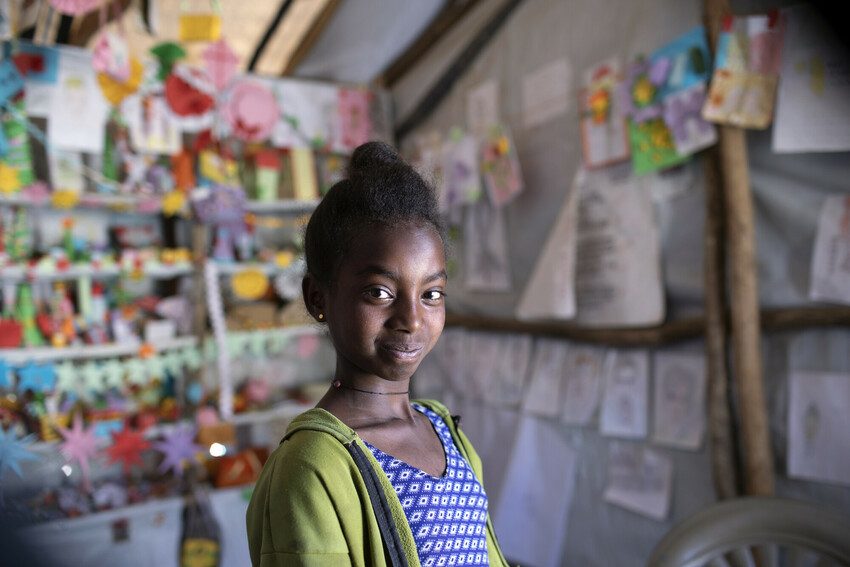
“Currently, I live in an IDP camp in Shire with my grandmother. At a school, I was a grade 4 student. To protect their lives, my mother, father, and brothers left for Sudan.
“My favourite things to do are singing and playing games, I do both with my friends.”
Kisanet
Our journey to Shire was really challenging. People were dying from the constant shooting. The sound of the gunfire fully took over my thoughts. It was both terrifying and depressing. When we arrived in Shire, the locals told us about the IDP settlements. For shelter and to meet our basic requirements, we immediately moved to one of the camps.
After some time, Plan International set up a space in the camp for children to play. It has greatly helped me and now I spend the majority of my time here. I initially felt stressed, but as I spent more time in the child friendly space, I started to feel better and more at ease.
I enjoy creative games and the physical exercises there. I’ve acquired new skills and can now draw pictures. My favourite things to do are singing and playing games, I do both with my friends.
I want to continue my studies in the future. I was a really good student when I was still in school. I particularly like studying languages. I want to finish school and become a teacher.”
Haftom, 16-years-old
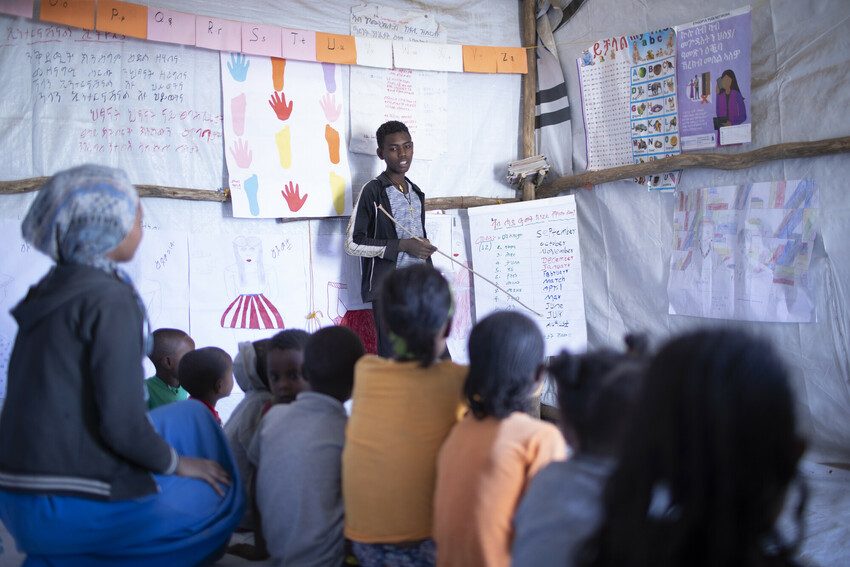
“I used to live with my father and mother, but lost them during the conflict. I went to Shire with my neighbours and have since discovered that my mother and father are both in Sudan. I was in grade 7, but I stopped going to school when the conflict started.
I saw a lot of suffering on our way to Shire. When we arrived, people advised us to go to the IDP camp so we could find shelter.
The staff from Plan International approached me and asked about my general wellbeing. I was invited to go to the child friendly space where the staff gathering information about me. Children were playing, drawing, singing, and dancing, and I could see hapiness there. I now always go to the centre after breakfast and stay there all day.
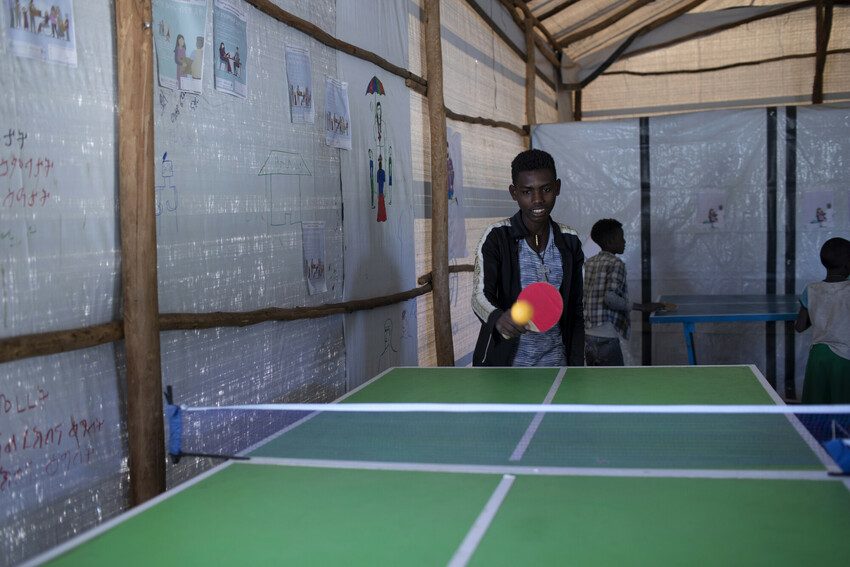
Photo credit: Plan International
Table tennis is one of my favorite things to play here. With my friends, I play table tennis frequently and I’ve become really good at it. Plan International staff also teach us different skills that are important for our lives. I am a member of the life skill clubs and teach people in the camp how to protect children, girls, and women from violence.
I used to feel depressed and preferred to be by myself because of the challenges I have had to overcome. But ever since I began spending time in the child friendly space, I’ve made a lot of friends and enjoy my time with them. The life skills training I took really helped me develop positive relationships with other people.
I wish to return home in the future and complete my education there. I want to graduate from college and pursue a career as a doctor. As a doctor, I want to help children.”
Yordanos, 15-years-old
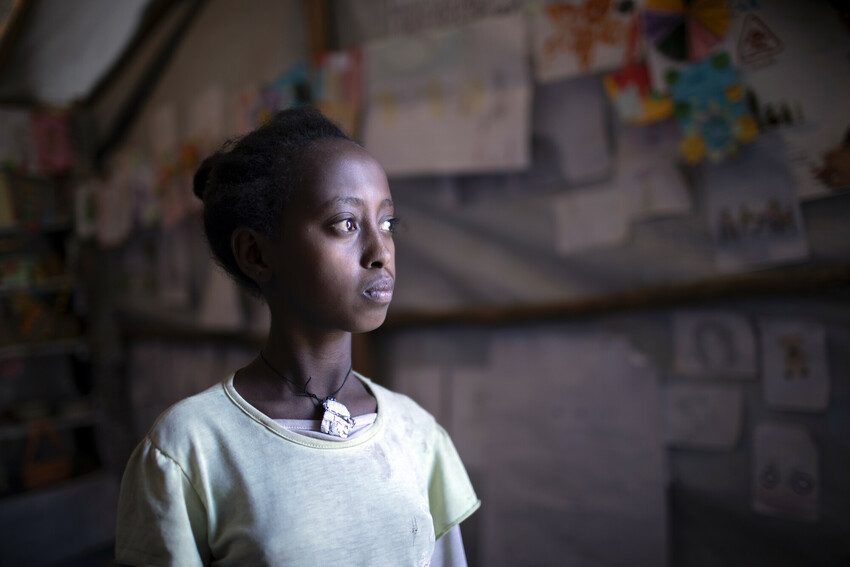
“It has been more than a year since I came to Shire with my older sister. We arrived here when the conflict started. Our mother and father both moved to Sudan. Our journey to Shire was quite difficult. As soon as we got here, we headed straight for the IDP camp.
At the child friendly space, I have made a lot of friends who are also IDPs and have been displaced from their homes. I like to draw and play with my friends. The staff at the centre help us develop our life skills.
Since first arriving at the child friendly space, each of us has developed a variety of talents. The children are now excellent at performing drama, singing songs, and drawing pictures. As for me, I am good at drawing portraits of people and flowers because I regularly practice drawing.
My goal is to continue my education in the future. I was a grade 6 student. It’s more than a year since I went to school. After completing high school, I want to enroll in college. I hope to become a doctor and work with children when I grow up.”
“I hope to become a doctor and work with children when I grow up.”
Yordanos
About the region
Conflict in Ethiopia’s Tigray region, which borders both Sudan and Eritrea, has displaced millions of people across northern Ethiopia. The vast majority of those fleeing are women and children who are undertaking dangerous journeys to reach safety, carrying just a few of their belongings with them.
When conflict first broke out in November 2020, tens of thousands of people took refuge in Shire, one of the biggest urban centres in Tigray. In 2022 the conflict continued to progress with new displacement resulting in around 1.8 million IDPs in Tigray, many of whom are now living in one of the 18 IDP camps spread across the city of Shire.
Plan International is working in Tigray to address the critical child protection needs of displaced people and host communities affected by the ongoing crisis. Funded by USAID, we are working alongside our volunteers and partners in Shire to provide care, psychosocial support, family tracing and reunification services at child friendly spaces in the camps, as well as running positive parenting programmes and raising awareness of child protection issues, such as violence, abuse and exploitation.
*This story is made possible by the support of the American people through the United States Agency for International Development (USAID). The contents are the sole responsibility of Plan International and do not necessarily reflect the views of USAID or the United States Government.
Categories: Emergencies
